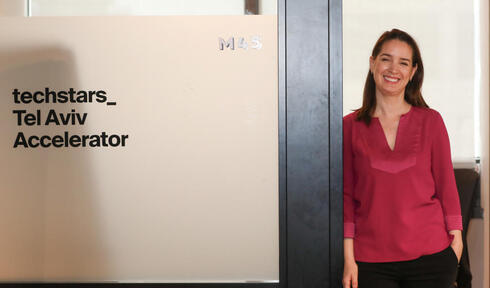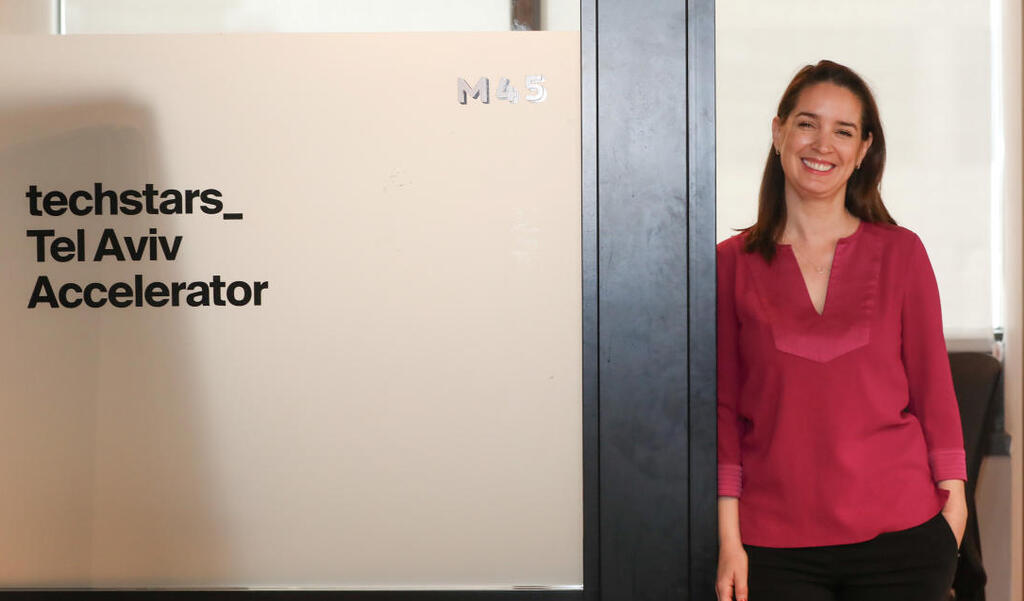
Interview
Techstars CEO: "2023 will be a graveyard for startups"
Maëlle Gavet, who has headed Techstars since 2021, is far from optimistic about the crisis in the industry: "Those who did not have time to raise enough are likely to encounter quite a few difficulties"
"The pandemic created an abnormal situation in the industry and led to an acceleration in many activities and areas and the value of the companies rose to unreasonable heights. There was overheating that suddenly stopped and led to a rethinking. But, I like a good crisis because the best companies are built then and it is a good way to see that you are focused on the right things. I built part of my career through crises and I'm very excited about this period," says Mäelle Gavet, who since the beginning of 2021 has managed Techstars, the largest accelerator in the world, in an interview with Calcalist. Techstars invests every year in about 500 startup companies in the pre-Seed stages and Gavet thinks that the coming years are going to be very difficult for the high-tech industry.
"In 2021, we saw companies that rose to an unimaginable value with a very small base of activity and we saw Seed companies that were valued at tens of millions of dollars without any financial consideration. We, the large seed investors, are supposed to be happy when the value increases, but it doesn't work that way. There are companies whose value increases are unhealthy. We still don't know when the crisis will end, whether this summer or in five years. There is a lot of uncertainty. We have thousands of companies in our portfolio and many investors in our companies and institutional investors who are partners with us, and I have heard every type of opinion from them about when the crisis will end. No one really knows what will happen and we teach our companies to be flexible and ready for anything."
What do you think will happen?
"Unfortunately, what I think will happen is that 2023 and 2024 will be a graveyard for startup companies. The companies still have a lot of money and there are still large rounds. Some of the companies that received money at a very early stage and did not build themselves are not ready for the crisis. Those companies that did not have time to raise enough are expected to encounter quite a few difficulties."
Gavet has been in the high-tech industry for quite a few years. In her last position she held a senior role at Ori Allon's company, Compass. From her perspective, she sees a difficult future for the industry in the near term. "Besides the aforementioned graveyard for many startups, I think we will also see an army of zombies among venture capital funds, who will not raise a new fund. They will work and invest, but will mainly deal with the money that already exists. There will be many funds that will not survive the future. There are over 2,000 active funds in North America, Europe and Israel, and in my estimation, the world does not need so many of them."
Will the impact of the crisis be different between companies?
Gavet thinks that the main problem will be for companies in advanced stages. "We are seeing difficult times for companies there, with value declines of 70% and great difficulty in raising money in general. These are companies that were built for a quick IPO, either through SPAC or a direct IPO, and all of that no longer exists.
"Also the companies that issued through SPAC and in general created a negative impact on the industry affect the future. Companies in less advanced stages will be able to raise, mainly through their existing investors, even if it will be accompanied by a decrease in value. In very early stages I believe it is possible to raise, but I no longer see scenarios of senseless values in the Seed and pre-Seed stages. We will also see due diligence checks that take much more time at each stage of the investment."
We see many layoffs in the industry in Israel. Where does it go from here?
"Unfortunately, I feel that we are only at the beginning of the wave of layoffs and we will see many more in the coming years. I don't think that companies have internalized the crisis and some of them are still living on the funds they raised in the past and have not yet hit a wall."
Gavet does not like the industry's use of the term "unicorn" (a startup that raised at a valuation of over one billion dollars), which has become synonymous with success, and she claims that she has never even heard of the term "centaur", which refers to startups that have passed the $100 million mark in annual revenues, which she titles as dragons. "The industry was focused on flashy companies, such as Airbnb and Uber, while we see more positive sides in the less flashy companies. Unicorns and dragons are mythological creatures. Dragons like to fight and win, so we should focus on them and not on unicorns," she says. "The focus only on unicorns created most of the problems in 2021, growth at any cost, very little financial capacity, and we prefer dragons with financial capacity to deal with any crisis that comes their way."
You worked at Compass, which has an Israeli background. How do you feel about this period?
"Compass has changed the residential real estate market in the United States. In 10 years they have become the largest real estate broker and have invested in technology more than any other broker in order to help their agents be more productive."
Gavet recently decided to put her familiarity with the field into writing and published a book titled: "Trampled by Unicorns: Big Tech's Empathy Problem and How to Fix It", whose main focus is on the lack of empathy of managers in the industry. "Big tech companies create a sense of lack of empathy and don't think about the impact they have on people," she says. "Being a good leader is measured in the way you influence others but you must be conscious. My book tried to answer the question of how we came to be a very unempathetic industry and how to handle it. But there is hope. Most companies are not empathetic because they are run by engineers and humans are part of the formula and they try to take people out of the equation and that makes them not empathetic.
"The book was written after I worked in the industry for 15 years and after I didn't understand why good people make terrible decisions from a human perspective. I tried to understand why companies suffer from a lack of empathy and then I also looked for the solution."
Techstars is one of the leading programs today for the cultivation of companies in the very early stages of establishment. Hila Ovil-Brenner recently retired from the management of Techstars Israel, which led Gavet to come to Israel in an attempt to find a new manager. "We had nine programs here in six very successful years, but we can do more. We are looking for a new manager here and see great importance in Israel. I expect that we will have two programs next year and we have an obligation to do so the year after as well. We will continue to invest in 50- 70 companies in Israel and this is only a small amount of what can be invested here.
"We are like an index to the early stages and operate all over the world in a variety of industries, such as agritech, edtech and foodtech. We have even invested in music and have successes and partnerships there. There is a lot of innovation in the world and I am very bullish on the Europe, Middle East and Africa region. Israel is a significant center of innovation, also beyond cyber and AI. There is a lot of potential in Africa as well and we opened offices in Lagos."
What are you mainly looking for?
"An area that has been of great interest to us in recent years is foodtech and agrotech. Food insecurity is something that has not existed for many years. My grandmother may have felt it in the past when she was at war, but it is a phenomenon that the thought of was not relevant until the climate crisis and Russia's war in Ukraine. This phenomenon requires technological solutions from the world of entrepreneurship."














